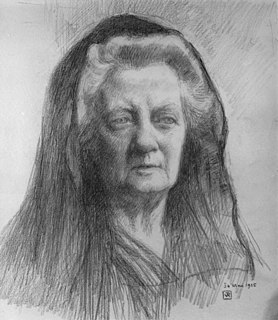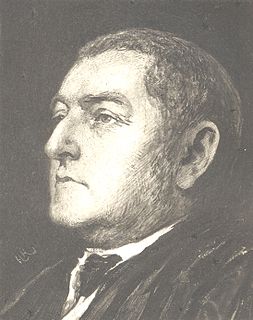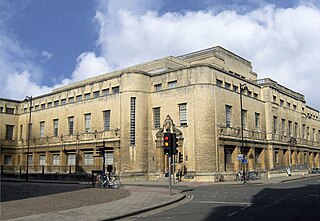Related Research Articles

André Paul Guillaume Gide was a French author and winner of the Nobel Prize in Literature. Gide's career ranged from its beginnings in the symbolist movement, to the advent of anticolonialism between the two World Wars. The author of more than fifty books, at the time of his death his obituary in The New York Times described him as "France's greatest contemporary man of letters" and "judged the greatest French writer of this century by the literary cognoscenti."

Edward Gibbon was an English historian, writer, and member of parliament. His most important work, The History of the Decline and Fall of the Roman Empire, published in six volumes between 1776 and 1788, is known for the quality and irony of its prose, its use of primary sources, and its polemical criticism of organised religion.

Jane Ellen Harrison was a British classical scholar and linguist. Harrison is one of the founders, with Karl Kerenyi and Walter Burkert, of modern studies in Ancient Greek religion and mythology. She applied 19th-century archaeological discoveries to the interpretation of ancient Greek religion in ways that have become standard. She has also been credited with being the first woman to obtain a post in England as a ‘career academic’. Harrison argued for women's suffrage but thought she would never want to vote herself. Ellen Wordsworth Crofts, later second wife of Sir Francis Darwin, was Jane Harrison's best friend from her student days at Newnham, and during the period from 1898 to her death in 1928.
Rosamond Deborah McKitterick is an English medieval historian. She is an authority on the Frankish kingdoms in the eighth and ninth centuries AD, who uses palaeographical and manuscript studies to illuminate aspects of the political, cultural, intellectual, religious, and social history of the Early Middle Ages. From 1999 until 2016 she was Professor of Medieval History and Director of Research at the University of Cambridge. She is a Fellow of Sidney Sussex College and Professor Emerita of Medieval History in the University of Cambridge.

Justin Winsor was an American writer, librarian, and historian. His historical work had strong bibliographical and cartographical elements. He was an authority on the early history of North America and was elected the first president of the American Library Association as well as the third president of the American Historical Association.

Henry Bradshaw was a British scholar and librarian.

Belle da Costa Greene was an American librarian best known for managing and developing the personal library of J. P. Morgan. After Morgan's death in 1913, Greene continued as librarian for his son, Jack Morgan, and in 1924 was named the first director of the Pierpont Morgan Library. Despite being born to Black parents, Greene spent her professional career passing for white.

Dorothy Whitelock, was an English historian. From 1957 to 1969, she was the Elrington and Bosworth Professor of Anglo-Saxon at the University of Cambridge. Her best-known work is English Historical Documents, vol. I: c. 500-1042, which she edited. It is a compilation of translated sources, with introductions.

Falconer Madan was Librarian of the Bodleian Library of Oxford University.

Sir Frank Chalton Francis was an English academic librarian and curator. Almost all his working life was at the British Museum, first as an assistant keeper in the department of printed books, and later as secretary of the museum, keeper of printed books and, between 1959 and 1968, director and principal librarian of the museum.
Agnes Ethel Conway, later Agnes Horsfield, was a British writer, historian and archaeologist who worked in the Middle East from 1929-1936. Perhaps best known for her excavations at Petra and Kilwa, she also produced publications on the history of Allington Castle, which had been owned by the Wyatt family in the 16th century.
Edward Gordon Duff, known as Gordon Duff, was a British bibliographer and librarian known for his works on early English printing.

Richard Julian Roberts FSA was a British librarian, bibliographer, and scholar.
Robert William Chapman, usually known in print as R. W. Chapman, was a British scholar, book collector and editor of the works of Samuel Johnson and Jane Austen.

Alfred Forbes Johnson, MC was an English academic librarian, bibliographer, curator, and expert in typography. He was Deputy Keeper of Printed Books at the British Museum. He is author of many bibliographical reference works, and the standard Encyclopaedia of Typefaces.
Henrietta Collins Bartlett (1873–1963) was an American bibliographer, Shakespeare scholar, and creator of the first modern census of Shakespeare's published drama. She has been called "one of the foremost bibliographers of her time," despite working in a scholarly field in which "the overwhelming majority has been male."
Lady (Dorothy) Brooke Nicholson, (1887–1967), better known by her maiden name Dorothy Lamb, was a British archaeologist and writer known for her catalogue of terracotta in the Acropolis Museum, Athens and her work in Mediterranean field archaeology.

Alice Buxton Winnicott née Taylor was an English research scientist, painter and ceramist. Her Upchurch Pottery manufactured Claverdon tableware for Heal's. She was the first wife of the paediatrician and psychoanalyst, D.W. Winnicott.

Katherine Laird ("Ka") Cox, the daughter of a British socialist stockbroker and his wife, was a Fabian and graduate of Cambridge University. There, she met Rupert Brooke, becoming his lover, and was a member of his Neo-Pagans. She was also a friend of Virginia Woolf and the Bloomsbury Group. During World War I she worked with the Serbian Relief Fund, assisting refugees in Corsica. After the war, she married the Labour politician Will Arnold-Forster, and became the first woman magistrate in Cornwall. She and her husband were instrumental in founding Gordonstoun School in Scotland in 1934. Her sudden death at the age of 51 fuelled speculation of involvement in the occult.
Ruth S. Granniss (1872-1954) was an American librarian, known for her longtime position as Librarian of the Grolier Club, which she held from 1906 to 1944.
References
- 1 2 3 4 5 6 'Miss Jane Norton: Bibliographer of Gibbon', The Times , 28 November 1962
- ↑ W. C. Lubenow (1998). The Cambridge Apostles, 1820-1914: Liberalism, Imagination, and Friendship in British Intellectual and Professional Life. Cambridge University Press. p. 136. ISBN 978-0-521-57213-2.
- ↑ Krishna R. Dronamraju (2017). Popularizing Science: The Life and Work of J. B. S. Haldane. Oxford University Press. p. 97. ISBN 978-0-19-933392-9.
- ↑ Dorothy M. Betz, 'Andre Gide in 1929-1930: An Unpublished Correspondence', Kentucky Romance Quarterly, Vol. 32, Issue 4, 1985.